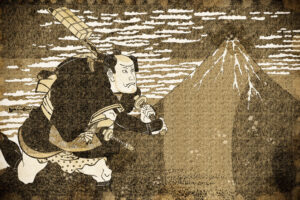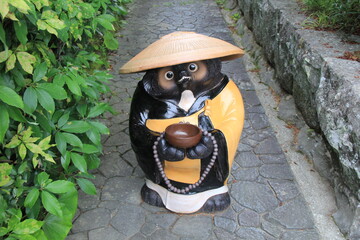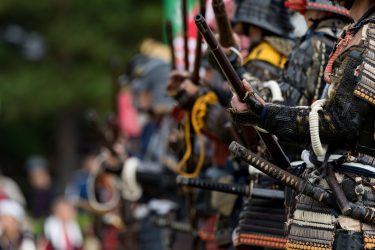
The Existence of What you can’t see
Although ninjas are known as shadowy figures, they also sometimes disguised themselves as ordinary people to conduct espionage activities — both publicly and covertly. Why is it that ninjas are still internationally known today, even though there are people who engage in intelligence activities, not only in Japan but throughout every era and culture? It may be largely due to the influence of movies and manga, but we will look at this from the context of the uniqueness of the Japanese people in this column.
Recent research has revealed that the mission of ancient ninjas was to survive and pass on information. In order to survive, it was clear that having useful information was more advantageous than expending energy trying to win physical battles. That is why they gathered information. In addition, as is sometimes said in the world of competition, how you fight and prepare your mind would be different if you are aiming to win versus simply trying not to lose, even if the result may be the same. Ninjas’ mission was to survive, which was the same as not losing for them.

Ninjas did not fight in such a way as to incur the resentment of their opponents, nor did they take credit for their victories. This was because they knew from their experience and psychological knowledge that defeating opponents in a way to incur their enmity would only lead to a negative cycle.
Speaking of how ninjas prepared their minds for their missions, they were good at conducting their activities stealthily, but they also acted on the assumption that what they could not see visually was also there. The followings are some example of this.
(1) The Kuji self-defense method (a kind of magic spell) performed when going on a mission was a spell-casting ritual for being protected by the gods. Ninjas went into battles with a strong mindset due to this ritual.
(2) They conducted various breathing techniques so that they were able to become stealthy and control their physical and mental states.
The goal was not just to ask god for help but to “act” beyond that. I believe that they consciously took those actions so that they would gain an invisible power and have the strength to achieve missions. (Later studies have shown that there was a clear cause-and-effect relationship.)

Expressions such as “God is watching,” “All the deities/ gods”(in Shintoism, it is believed that a god exists for everything), “collect good karma,” and “reading the air” are still used on a daily basis. It is a feeling of being connected to something that cannot be clearly quantified, but we feel its existence. I believe that the Japanese people — no just ninjas — have a tendency to be equipped with those senses.
This way of living where the emphasis is placed on not losing, not fighting, surviving instead of going for a win, and not showing off achievements is unique to Japanese people and leaves a mysterious impression on people overseas. This may be a contributing factor for them to be attracted to Japan.







